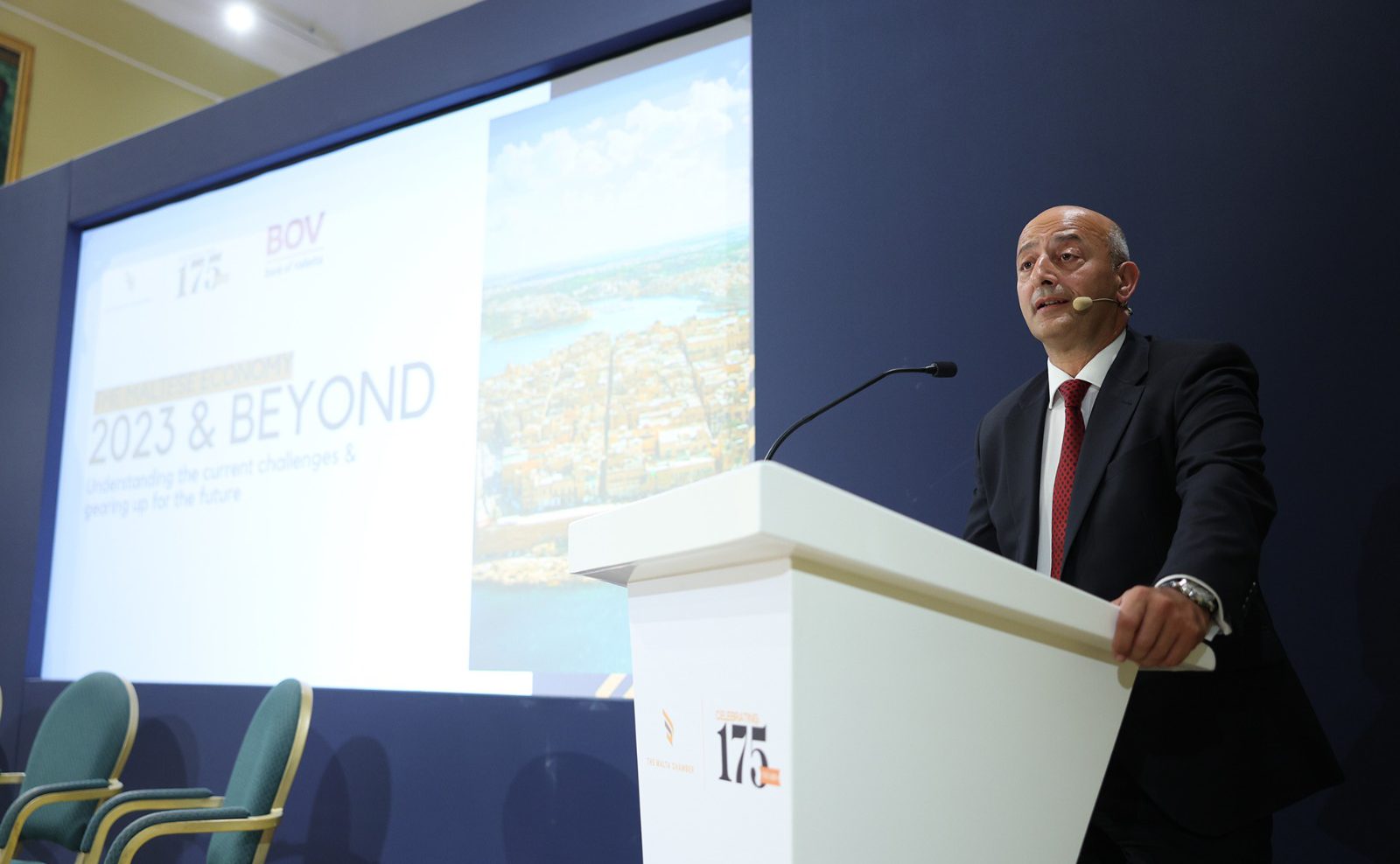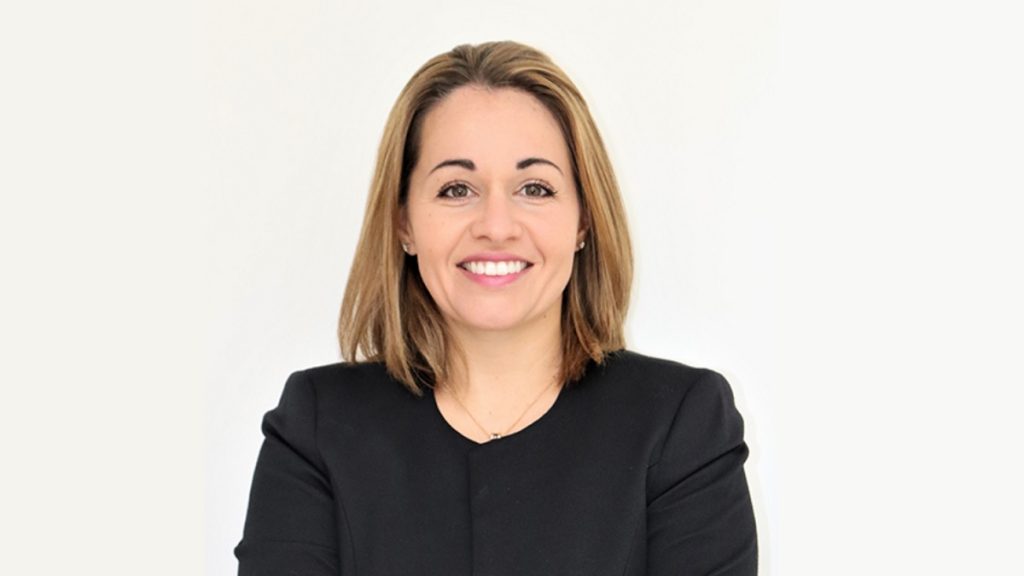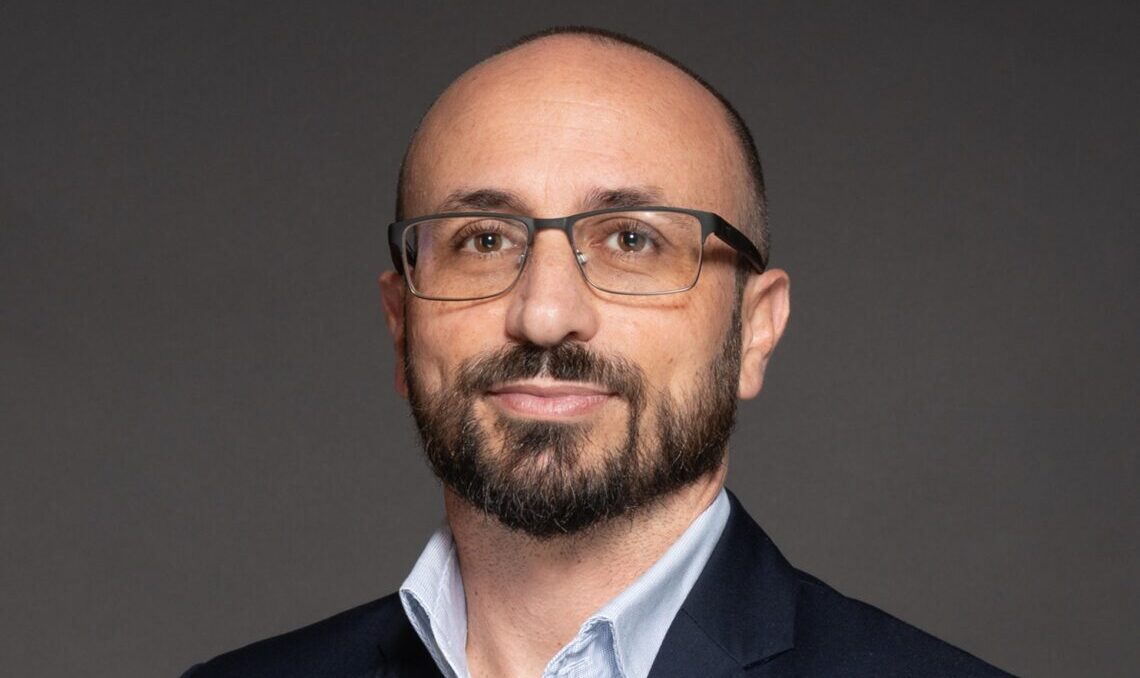Bank of Valletta plc (BOV) CEO Kenneth Farrugia has emphasised the importance of sustainability and putting more weight on ESG in business and operational models, so that Malta remains competitive in attracting more foreign investment.
This came in his speech during a business seminar organised by The Malta Chamber of Commerce, Enterprise and Industry in collaboration with BOV, titled “The Maltese Economy: 2023 & Beyond”. During the seminar, various key stakeholders discussed the current state of the Maltese economy and gave interesting insights on the matter.
Mr Farrugia highlighted the importance of sustainability and ESG principles to support the country’s sustainability ambitions. “We noticed two extremes when meeting clients: those who have strategically embraced ESG in their business models, whilst others have a very limited understanding of sustainable development goals and ESG ambitions,” he said.
“Our collective contribution to economic growth should be driven by sustainable growth which in turn will strengthen the country’s value proposition making it more attractive for foreign direct investment, which is so important for Malta and Gozo,” he added.
Mr Farrugia also emphasised that very frequently, people are driven by the idea of “what is in it for me?” He remarked that such a limitation “needs to be extended to the important consideration of the way ESG will contribute to make Malta an attractive investment destination”. In that respect, he added that Malta experiences “multiple armchair critics” that are “completely devoid of constructive solutions”.

He explained that should the industry want to sustain the growth of Malta’s economy, it needs to “take charge of the required changes” as it is “easy to criticise”, but then a backseat is often taken “when it matters most”. Effectively greenifying the economy needs to be “financed and incentivised”, and Mr Farrugia noted that everyone has a role to play in this paradigm shift which is “so important for the country in its ambitions to ensure sustainable growth”.
He added that it comes as no coincidence that the social part (the ‘S’) comes in the middle of ESG, as “everything we do ultimately revolves around our society”.
The bank’s CEO also reaffirmed BOV’s position as a “catalyst in the local economy”, through its aim to “add value to society”. He explained that it does so as it believes that in this manner, it will “create value for the customers and our bank”. “We commit to remaining supportive of the Maltese economy, and we want to be a catalyst in the business community to actively contribute and support the required changes. Events like this are stimulating discussions and providing interesting insights but these need to be followed up and events like this should not end up simply being talking shops,” Mr Farrugia continued.
Failing to act on these events would risk the industry generating a number of useful suggestions that would not be followed up on and eventually end up being fizzled out. “As a bank, we have identified those sectors we feel are behind the curve regarding ESG, and we will be supporting these sectors to embed ESG principles in their business models and operations,” he said.

BOV Senior Manager in Data Insights and Economics Malcolm Bray was another speaker in the seminar, and he outlined the salient features and latest developments of Malta’s economy. He explained how during pre-pandemic years, Malta’s economic growth was higher than in the euro area and such a pattern is forecast to continue even in 2023 and 2024. He remarked how economic growth has tended to be “job-rich”, contributing to the significant increase in the share of foreign workers and to a pronounced expansion in the size of the population. After discussing a number of other topics, Mr Bray stated that stakeholder investment is “key to ensuring the right balance is achieved”.
The Malta Chamber Deputy President Nick Xuereb highlighted the main pressure point the labour market is experiencing, the impact of inflation and interest rates, the importance of tax reforms, and the importance of pushing the boundaries. “We are in a permacrisis state, and we must act diligently and in a timely manner to navigate and mitigate the challenges that lie ahead,” he said.
During a panel discussing the future of Malta’s economy, Kevin Rapinett, Member of The Malta Chamber Board of Management noted that “the numbers do not lie”.
“Considering the challenges of the past years, we did relatively well, however, several cracks can be seen. These cracks are unfortunately present because Malta has adopted a model over the past 10 years that is solely focused on the ‘increasing numbers’ of our economy leading to a myriad of unsustainable practices,” he explained. He also made reference to Minister of Finance Clyde Caruana’s recent call to revisit Malta’s economic model, describing it as a “timely one” since it will allow for “sustainable growth when looking towards the medium and long term”.
Silvan Mifsud, Council Member of The Malta Chamber, presented some of the topics and issues that The Malta Chamber 2024 Pre-Budget document will entail. He stressed the “urgent need” to revise the current trend of increasing productivity with numbers.
Featured Image:
BOV CEO Kenneth Farrugia during the seminar
Lara Falzon appointed CEO of Yolo Group’s B2B Brands
The experienced executive said the firm has 'enormous potential for innovation, strengthening partnerships and scaling across global markets'
Why The Phoenicia Malta is the perfect setting for summer events
The Phoenicia Malta blends five-star elegance with award-winning cuisine and exceptional hospitality to create the ideal setting for group events ...
Sophie-Ann Busuttil appointed Director at Luxury Living Technologies following tragic loss of her father
For the last two years she has served as head of the group’s Luxury Living Sustainable Hospitality Company.
Aaron Azzopardi appointed General Manager at Aviaserve Ltd
Aaron tells MaltaCEOs.mt he's 'humbled and excited' as he takes on the new role.









